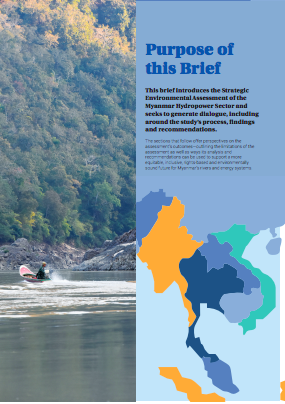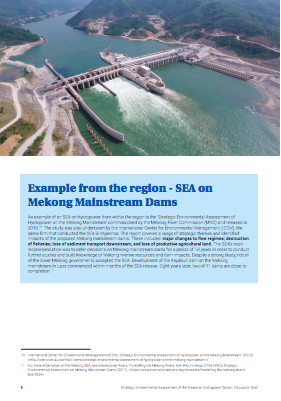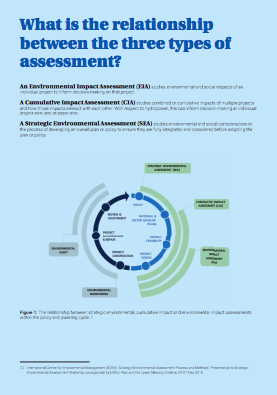The Discussion Brief
This brief introduces the Strategic Environmental Assessment of the Myanmar Hydropower Sector and seeks to generate dialogue, including around the study’s process, findings and recommendations. While the assessment was a contested process, it produced important outcomes, including the recommendation to reserve the mainstream of Myanmar’s major river basins from hydropower development to keep these rivers free-flowing.
The brief offers perspectives on the assessment’s outcomes—outlining the limitations and concerns with the assessment as well as ways its analysis and recommendations can be used to support a more equitable, inclusive, rights-based and environmentally sound future for Myanmar’s rivers and energy systems.
Background
In 2016, the International Finance Corporation—the private-sector lending arm of the World Bank—began a Strategic Environmental Assessment (SEA or “the study”) of the Myanmar Hydropower Sector. To conduct this study, it partnered with the Myanmar Ministry of Electricity and Energy and Ministry of Natural Resources and Environmental Conservation. The study took two years to complete, with the final report released in December 2018. During this time, the SEA produced a large amount of documentation, including baseline reports, a database of proposed hydropower projects, analysis and recommendations on the hydropower sector, and proposals for further studies.
The SEA process engaged many groups and stakeholders around a dialogue on hydropower, but it also generated significant concern and opposition. This included concerns over the priority given to peace and conflict and human rights issues, and limitations in the framing of the SEA and the assessment process.
Overview
This discussion brief examines the outcomes of the assessment and the concerns in the context of best practice principles for strategic environmental assessment. It outlines the important outcomes of the report, including:
- Recommendation for no hydropower dams on the mainstream of major river basins, including the Ayeyarwady, Thanlwin, Mekong, Chindwin, Sittaung. This reflects best practice in maintaining the ecosystem functions of healthy rivers.
- Proposing a Sustainable Development Framework for hydropower projects that includes a three-step approval process, and the establishment of new institutions and a policy framework for implementation.
- Contributing significant documentation to the knowledge base on rivers and hydropower projects in Myanmar.
Read the Strategic Environmental Assessment (SEA) Final Report & Discussion Brief
International Rivers’ Southeast Asia program is part of the regional Transboundary Rivers of South Asia program. Supported by the Government of Sweden, TROSA is a collaboration with Oxfam, IUCN, ICIMOD and many local organizations that works on some of the more complex rivers in South and Southeast Asia: the Ganga, Brahmaputra and Meghna river systems, including their tributaries such as the Teesta, and Asia’s last last free flowing river, the Salween. TROSA works to promote improved cross-border governance of these transboundary rivers, support women’s leadership, and advance energy alternatives to large hydropower.



